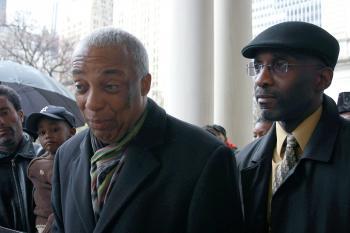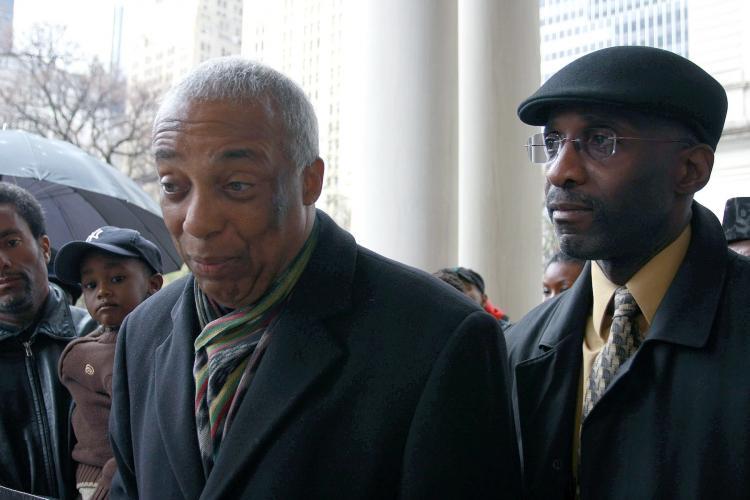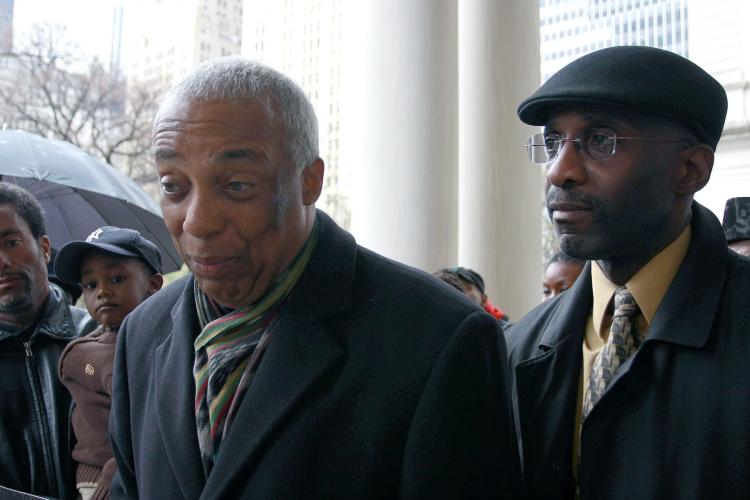NEW YORK—Councilman Charles Barron announced Tuesday that the Freedom Party will legally challenge mayoral control of the city’s schools. Mayor Michael Bloomberg took control of the school system in 2002, the first time since 1969 a mayor has held such power.
Bloomberg exercised this power to appoint former Schools Chancellor Cathie Black in November. He admitted failure when he dismissed her last week after only three months in the position. He appointed Deputy Mayor Dennis Walcott as her replacement—a like-minded individual who has said he completely agrees with the mayor’s educational policies.
Freedom Party attorney Roger Wareham questions “Whether it represents an infringement on the democratic rights of the citizens of New York City to have all the power in terms of the determination of what goes on in the department of education in the hands of one person.”
Mayoral control was contested in 1969 and the Board of Education took the reins. That system also had its problems.
“There certainly were problems,” admits Wareham. “A bureaucracy was set up that didn’t really speak to parents’ input and accountability for the education of our children, so it was really a perversion of what the original thrust had been.”
Accountability is exactly what Jessica Scaperotti of the mayor’s office says is provided by mayoral control.
“Mayoral control holds the mayor accountable for the city’s schools, while providing avenues for input from parents, community and advocates,” said Scaperotti in a phone interview.
In 2009 when mayoral control of the schools was up for review in Albany, it met with debate but was upheld in the end. The state school board upheld Bloomberg’s appointment of then-Schools Chancellor Joel Klein and did not show a desire to take power, instead calling on the Legislature to renew mayoral control.
In an online education forum hosted by the National Journal just after the renewal, experts and politicians weighed in on the issue of mayoral control.
“Critics assert that mayoral control destroys the democracy of the school board, since school board officials are generally elected by the public,” noted Rep. Donald M. Payne (D-N.J.). “However, proponents of mayoral control argue that low voter turnout and low level of awareness that mark board elections routinely enable organized interest to exert an unhealthy influence. As a result, cities are plagued with passive leadership unwilling to upset the status quo and foster true school reform,” he continued.
Others held up Bloomberg as a success story for mayoral control, including Andy Kress, former senior adviser on Education to President George W. Bush and Frederick M. Hess, director of Education Policy Studies at the American Enterprise Institute. They said his strong educational policies are what made mayoral control work in New York City. That was at the height of Bloomberg’s educational successes—successes later questioned as the standard of assessment tests was raised and school ratings dropped.
While admitting there is still work to be done, Scaperotti points to the 2009 spike in graduation rate, a historic high of 63 percent. The city saw a historic low for dropouts in the same year at 11.8 percent.
“Only 23 percent of the 65 percent graduates are prepared for college or a career,” argues Barron, citing a New York State Department of Education Report that came out early this year.
The report he was referring to determined whether students who graduated were prepared for college or a career based on their performance on the math and English Regent exams.
A student was considered college or career ready if he or she scored 80 percent or better on the math exam and 75 percent or better on the English exam, and is based on 2009 figures.
Other policies that have met with opposition include the mayor’s support of charter schools, the practice of placing several schools within the same building, and the closure of failing schools. “He’s pushing failing policies,” asserted Barron.
Barron did not, however, have a plan for how to form a governing body that would be accountable to parents and the schools community. He said that would be “a piece of cake,” that the real challenge was wrestling control from the mayor.
Wearem reports that he will study the legal action taken in 1969 to end mayoral control and adapt it to today’s situation. Barron added that if legal action does not work, he will rally New Yorkers to continue the fight for the cause until a change is made.
Bloomberg exercised this power to appoint former Schools Chancellor Cathie Black in November. He admitted failure when he dismissed her last week after only three months in the position. He appointed Deputy Mayor Dennis Walcott as her replacement—a like-minded individual who has said he completely agrees with the mayor’s educational policies.
Freedom Party attorney Roger Wareham questions “Whether it represents an infringement on the democratic rights of the citizens of New York City to have all the power in terms of the determination of what goes on in the department of education in the hands of one person.”
Mayoral control was contested in 1969 and the Board of Education took the reins. That system also had its problems.
“There certainly were problems,” admits Wareham. “A bureaucracy was set up that didn’t really speak to parents’ input and accountability for the education of our children, so it was really a perversion of what the original thrust had been.”
Accountability is exactly what Jessica Scaperotti of the mayor’s office says is provided by mayoral control.
“Mayoral control holds the mayor accountable for the city’s schools, while providing avenues for input from parents, community and advocates,” said Scaperotti in a phone interview.
In 2009 when mayoral control of the schools was up for review in Albany, it met with debate but was upheld in the end. The state school board upheld Bloomberg’s appointment of then-Schools Chancellor Joel Klein and did not show a desire to take power, instead calling on the Legislature to renew mayoral control.
In an online education forum hosted by the National Journal just after the renewal, experts and politicians weighed in on the issue of mayoral control.
“Critics assert that mayoral control destroys the democracy of the school board, since school board officials are generally elected by the public,” noted Rep. Donald M. Payne (D-N.J.). “However, proponents of mayoral control argue that low voter turnout and low level of awareness that mark board elections routinely enable organized interest to exert an unhealthy influence. As a result, cities are plagued with passive leadership unwilling to upset the status quo and foster true school reform,” he continued.
Others held up Bloomberg as a success story for mayoral control, including Andy Kress, former senior adviser on Education to President George W. Bush and Frederick M. Hess, director of Education Policy Studies at the American Enterprise Institute. They said his strong educational policies are what made mayoral control work in New York City. That was at the height of Bloomberg’s educational successes—successes later questioned as the standard of assessment tests was raised and school ratings dropped.
While admitting there is still work to be done, Scaperotti points to the 2009 spike in graduation rate, a historic high of 63 percent. The city saw a historic low for dropouts in the same year at 11.8 percent.
“Only 23 percent of the 65 percent graduates are prepared for college or a career,” argues Barron, citing a New York State Department of Education Report that came out early this year.
The report he was referring to determined whether students who graduated were prepared for college or a career based on their performance on the math and English Regent exams.
A student was considered college or career ready if he or she scored 80 percent or better on the math exam and 75 percent or better on the English exam, and is based on 2009 figures.
Other policies that have met with opposition include the mayor’s support of charter schools, the practice of placing several schools within the same building, and the closure of failing schools. “He’s pushing failing policies,” asserted Barron.
Barron did not, however, have a plan for how to form a governing body that would be accountable to parents and the schools community. He said that would be “a piece of cake,” that the real challenge was wrestling control from the mayor.
Wearem reports that he will study the legal action taken in 1969 to end mayoral control and adapt it to today’s situation. Barron added that if legal action does not work, he will rally New Yorkers to continue the fight for the cause until a change is made.







